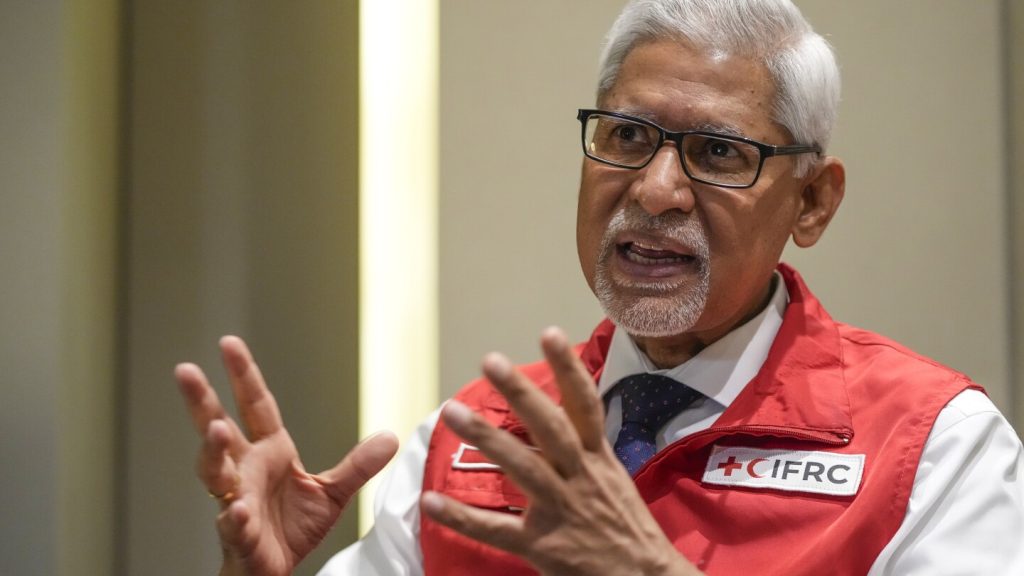The International Federation of Red Cross and Red Crescent Societies has launched an international emergency appeal for Lebanon during the Israel-Hezbollah war. The conflict has resulted in thousands of deaths and injuries over the past six weeks, prompting the IFRC to request donors to provide resources. Jagan Chapagain, the secretary-general of the IFRC, emphasized the urgent and growing needs in Lebanon, as he toured shelters housing displaced individuals. The emergency appeal aims to raise 100 million Swiss Francs to assist Lebanon and the Lebanese Red Cross throughout the ongoing conflict, which has already claimed over 3,000 lives and wounded more than 13,000 people.
In northern Israel, the prime minister’s office reported 68 soldiers and 41 civilians killed since October 2023, with more than 60,000 people displaced from their homes. The conflict escalated drastically on Sept. 23, with intense Israeli airstrikes hitting south and east Lebanon, as well as Beirut’s southern suburbs, resulting in hundreds of deaths and displacing nearly 1.2 million people. The humanitarian situation in the region is dire, with many individuals in community centers in need of hygiene kits, non-food items, blankets, and heaters as winter approaches. Chapagain highlighted the need for sustained support even if hostilities cease, as it will take time for things to return to normal.
The IFRC’s emergency appeal spans two years, emphasizing the prolonged impact of the conflict and the necessity for continued assistance. Chapagain stressed the importance of finding a political solution to the longstanding challenges in the region, urging the global community to come together to address these issues. He noted the significant risks faced by paramedics and volunteers on the frontlines, with more than 30 fatalities globally this year and dozens more injured. Lebanon, the Gaza Strip, and Sudan were cited as some of the most dangerous locations for humanitarian workers. In Lebanon, 17 members of the Lebanese Red Cross have been wounded while carrying out rescue duties, underscoring the dangers faced by frontline responders.
Chapagain reiterated the need to protect the Red Cross and Red Crescent emblems during conflicts to ensure the safety of humanitarian workers. The escalating violence in the region has posed unprecedented challenges for humanitarian organizations, with many staff members paying the ultimate price in their efforts to assist those in need. The IFRC’s appeal is a critical step towards addressing the humanitarian crisis in Lebanon and providing essential support to those affected by the conflict. As the situation in the region remains volatile, the international community must continue to prioritize humanitarian assistance and work towards a lasting peaceful resolution to the ongoing conflict in Lebanon.


